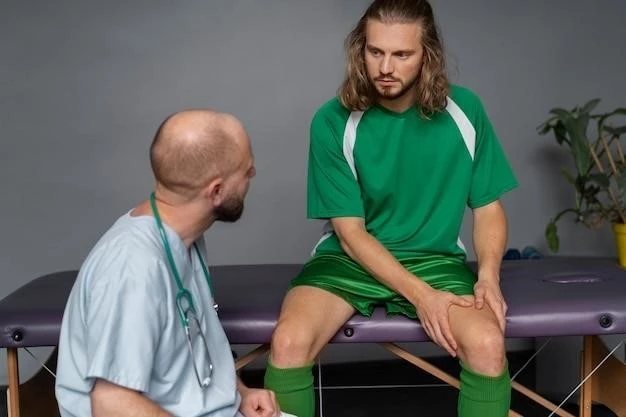Overview of Arnold-Stickler-Bourne Syndrome
Arnold-Stickler-Bourne Syndrome is a rare genetic disorder that affects connective tissues.
Definition and Background
Arnold-Stickler-Bourne Syndrome‚ a rare genetic disorder‚ affects collagen production‚ leading to skeletal and connective tissue abnormalities. It can result in vision‚ hearing‚ and joint issues. The syndrome was first described by ophthalmologists Michael M. Arnold and Gunnar Stickler‚ and geneticist Dorothy Evans Bourne.
Symptoms and Signs of Arnold-Stickler-Bourne Syndrome
Physical Symptoms
Physical symptoms of Arnold-Stickler-Bourne Syndrome include craniofacial abnormalities‚ cleft palate‚ hearing loss‚ joint hypermobility‚ and vision problems such as myopia and retinal detachments. These symptoms vary in severity and can impact the individual’s quality of life.
Medical Complications
Individuals with Arnold-Stickler-Bourne Syndrome may experience complications such as early-onset osteoarthritis‚ respiratory issues due to airway anomalies‚ increased risk of retinal detachments leading to vision loss‚ and dental problems. These complications require ongoing monitoring and management by healthcare professionals.
Causes and Risk Factors of Arnold-Stickler-Bourne Syndrome
Genetic Causes
Arnold-Stickler-Bourne Syndrome is primarily caused by mutations in genes responsible for collagen production‚ such as COL2A1‚ COL11A1‚ and COL11A2. These genetic mutations affect the development of connective tissues‚ leading to the characteristic features of the syndrome.
Risk Factors
Advanced parental age at conception and a family history of Arnold-Stickler-Bourne Syndrome are considered risk factors for the condition. Individuals with a family history of the syndrome or known genetic mutations associated with the disorder are at an increased risk of developing the condition.
Diagnosis and Testing for Arnold-Stickler-Bourne Syndrome
Diagnostic Process
The diagnostic process for Arnold-Stickler-Bourne Syndrome typically involves a thorough physical examination‚ assessment of medical history‚ genetic testing to identify mutations in collagen-related genes‚ imaging studies like X-rays and MRIs to evaluate skeletal abnormalities‚ and ophthalmologic evaluations to detect vision issues associated with the syndrome.
Testing Methods
Testing methods for Arnold-Stickler-Bourne Syndrome include genetic testing to identify mutations in collagen-related genes‚ imaging studies such as X-rays and MRIs to assess skeletal abnormalities‚ ophthalmologic evaluations for vision issues‚ and audiometric assessments for hearing loss. These tests play a crucial role in confirming the diagnosis and determining the severity of the syndrome.
Treatment Options for Arnold-Stickler-Bourne Syndrome
Medical Interventions
Medical interventions for Arnold-Stickler-Bourne Syndrome may include surgical procedures to address craniofacial abnormalities or joint issues‚ medications to manage pain or reduce inflammation‚ and treatments to address visual or auditory impairments. These interventions aim to improve the individual’s quality of life and manage specific symptoms associated with the syndrome;
Therapeutic Approaches
Therapeutic approaches for Arnold-Stickler-Bourne Syndrome may involve physical therapy to improve joint function and mobility‚ speech therapy for individuals with communication difficulties due to cleft palate‚ and vision interventions such as corrective lenses or surgical procedures to address retinal detachments. These approaches aim to enhance the individual’s well-being and functional abilities.

Living with Arnold-Stickler-Bourne Syndrome⁚ Tips and Recommendations
Day-to-Day Management
Day-to-day management of Arnold-Stickler-Bourne Syndrome may involve maintaining regular follow-up appointments with healthcare providers‚ adhering to prescribed treatment plans‚ incorporating appropriate assistive devices for daily tasks‚ and seeking appropriate supportive services as needed. Adopting a healthy lifestyle‚ including a balanced diet and regular physical activity‚ can also contribute to overall well-being and management of the syndrome.
Supportive Care
Supportive care for individuals with Arnold-Stickler-Bourne Syndrome includes access to specialized healthcare professionals such as genetic counselors‚ orthopedic specialists‚ and ophthalmologists. It also involves emotional and psychological support through counseling services and involvement in patient advocacy groups to connect with others facing similar challenges. Providing a supportive environment and resources can significantly benefit individuals living with the syndrome.
Research and Developments in Arnold-Stickler-Bourne Syndrome
Ongoing Studies
Ongoing studies on Arnold-Stickler-Bourne Syndrome focus on identifying new genetic mutations associated with the condition‚ exploring novel treatment approaches to manage symptoms more effectively‚ and investigating potential interventions to improve the quality of life for individuals affected by the syndrome. These studies play a crucial role in advancing our understanding and management of this rare genetic disorder.
Future Prospects
The future prospects for Arnold-Stickler-Bourne Syndrome include the development of targeted treatments based on genetic insights‚ advancements in surgical techniques to address skeletal abnormalities‚ and improved support services for individuals and families affected by the syndrome. With ongoing research and technological advancements‚ there is hope for enhanced outcomes and quality of life for those living with this rare genetic disorder.
Support Groups for Individuals with Arnold-Stickler-Bourne Syndrome
Available Resources
Individuals with Arnold-Stickler-Bourne Syndrome can benefit from resources such as online support forums‚ educational materials provided by healthcare institutions‚ and access to genetic counseling services. These resources offer valuable information‚ emotional support‚ and guidance to individuals and families navigating the challenges associated with the syndrome.
Benefits of Support Groups
Support groups provide individuals with Arnold-Stickler-Bourne Syndrome a sense of community‚ shared experiences‚ emotional support‚ and practical tips for managing the challenges associated with the condition. Participation in support groups can reduce feelings of isolation‚ offer encouragement‚ and empower individuals to cope more effectively with their diagnosis.
